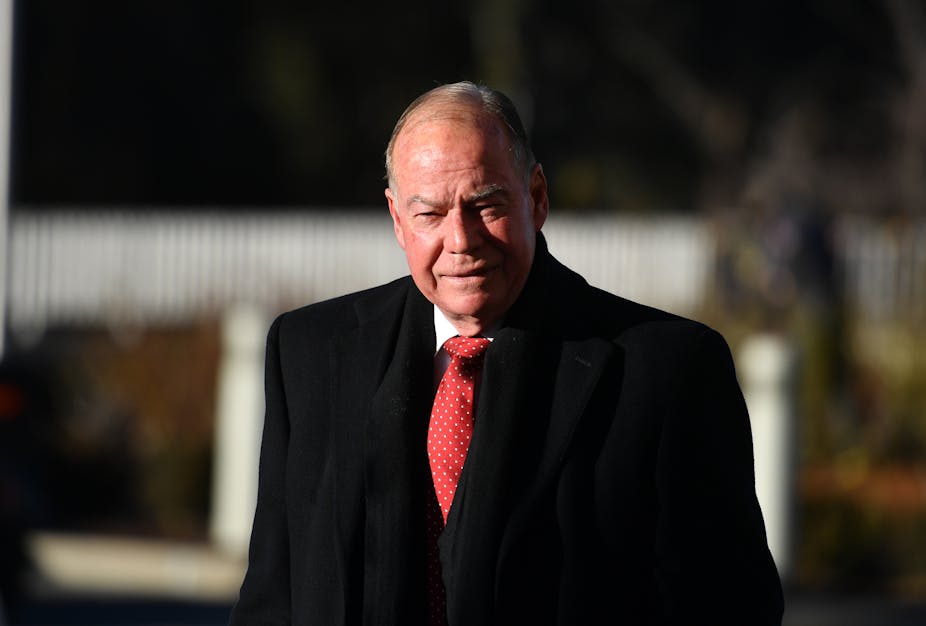A tough debate in the Coalition party meeting has highlighted the substantive and political concerns an increasing number of Liberal MPs have about the live sheep trade.
As Agriculture Minister David Littleproud continued his trip to reassure Middle Eastern countries (United Arab Emirates, Kuwait, and Qatar) that the trade will remain, in Canberra on Tuesday colleagues were reporting a big voter backlash against the exports and questioning why nothing had been done about blatant breaches of current regulations.
Malcolm Turnbull’s annoyance at former minister Susan Ley, whose private member’s bill to phase out the trade has put the government on the spot, was obvious at the meeting. The Prime Minister said she should have taken her concerns to the minister, rather than struck out on her own.
The Liberals pride themselves on giving independence to their MPs, but when the right is exercised, it can be another matter. Turnbull had earlier tried unsuccessfully to twist Ley’s arm to have her drop the bill. Instead, she went ahead, with another Liberal, Sarah Henderson, seconding the bill on Monday.
In the party room two Western Australians, Nola Marino and Rick Wilson, expressed their thanks for the government continuing to support the trade – which affects mainly that state. They received a round of applause. But then the tone became more critical.
Victorian Russell Broadbent warned that the trade had turned from “an issue” to a “vote-changing issue”.
He said he had recently been with a group of very conservative women from farming families, among whom the topic was white hot. Broadbent didn’t use the term “doctors’ wives”, but these are the people he meant – Liberal supporters whose vote can be moved by particular causes.
In a debate involving some 14 speakers, other MPs reinforced the message about community reaction.
Queenslander Warren Entsch doubted the new regulations announced by Littleproud last week were going to work. He also raised the pertinent question of why breaches of existing regulations hadn’t been prosecuted. For example, pregnant ewes had been shipped, when they shouldn’t have been, as well as sheep with heavy fleeces, that should have been shorn.
Entsch said this was a declining industry, and one more incident – which he predicted would occur – would be the end of it. The government should be preparing transition arrangements, he said.
Read more: The live export trade is unethical. It puts money ahead of animals' pain
In retrospect, perhaps Littleproud should have delayed his trip to be at the meeting and hear the worries. Continuing the exports still has party room support. But as things appear now, the future of this controversial trade will rest more with the opinion of the Australian community than with the mood of the Middle Eastern buyers.
Postscript:
The concerns of Liberals and the public will only be increased by the outcome of a WA court case, which involved the use of falsified documents to send a shipment of sheep to Pakistan, where some were destroyed in horrific circumstances.
Garry Robinson was a general manager at Perth based exporter Wellard in 2012 when a shipment was turned away from Bahrain, which alleged concerns about disease. Robinson used forged documents to get approval from the Australian government to redirect the ship to Pakistan.
Robinson on Tuesday was sentenced to 18 months jail but this was suspended and he has been released on a $20,000 recognisance order.

